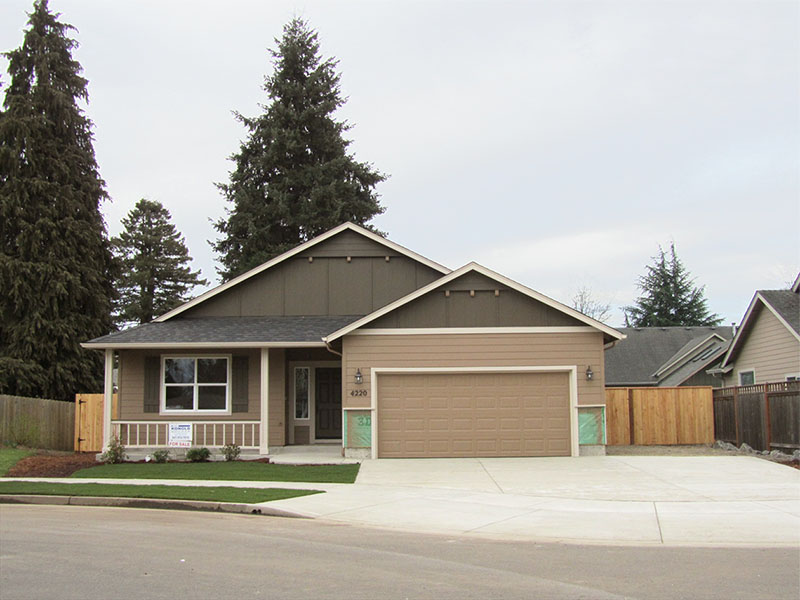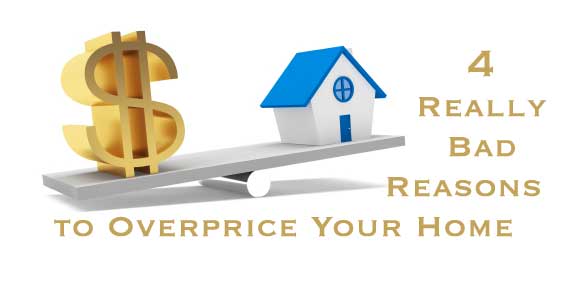Mortgage Loan Mistakes Than Can Cost You Real Money
Good Morning!
With mortgage loans remaining at historic low levels and the brisk housing market, I find many home buyers making huge mortgage loan mistakes. Here is a recent article from "Realty Times", that just might help you if you are in the market for a mortgage loan.

For most buyers, the mortgage is the largest monthly expense they will have. Yet most borrowers will do little to no preparation, negotiation, or shopping to get the best deal. And they end up paying much more for their loans than they need to. You? You're smarter than that, or you wouldn't be reading this article. Here are five of the biggest mistakes that can cost you real money.
1. Believing advertised rates are what you'll pay
Unless you have perfect or near-perfect credit, most advertised rates are out of your league. To get boasting rights on a rate that good, you have to pay part of a point (one percent of the loan amount), or more to get the best rates.
Your lender will go over your credit with a fine-tooth comb to find anything to raise the rate. That includes qualifying you at the beginning of the transaction, and then running your credit again a day or two before you're supposed to close on the home and loan. If there's been any change in your debt-to-income ratio, goodbye low mortgage rate.
2. Not comparing lenders
Just like everyone knows two or three real estate agents or more, everyone knows a loan officer or a mortgage broker. A loan officer works for a bank or savings and loan and can only offer you loan packages that the bank has put together. A mortgage broker prequalifies you just like a loan officer, and shops your deal around to various lenders.
Whether you talk to a loan officer or a mortgage broker, you're going to have to share personal financial information in order to get a realistic rate. Reputable brokers will show you what certain banks and credit unions quoted and you can pick the loan you like best.
If you'd rather do your own shopping, consider talking to a local bank, a national bank, a credit union, and a savings and loan, but remember, unless you give them personal information and permission to run your credit, it's just talk.
3. Not paying attention to terms
Advertised rates even for those with perfect credit aren't what you will actually pay. The true cost of the loan is the APR or annual percentage rate, which includes fees from the lender.
Understanding loan terms is harder than shopping for a new mattress. There are so many ways lenders can inch up the fees. A loan origination fee is also called a processing fee. It pays the loan officer or mortgage broker, so this fee can vary widely. You may pay one lender more for an appraisal than another might charge you.
One lender may charge more for pulling your credit than another. It's all in your good faith estimate, which you don't get until you've applied for the loan.
All terms are negotiable, so don't be afraid to ask what a particular fee is for and can it be reduced or eliminated.
4. Waiting for a better rate
It's great to have bragging rights on a low rate, but you don't want to lose the home of your dreams over a quarter of a point in interest.
There's a big picture here you could be missing. No matter what your interest rate is, you're going to pay thousands of dollars in interest up front before you make any serious gain in equity. If you go all the way to the end of your loan's term, you'll pay so much interest that you could have bought the same home two or three times.
Instead of focusing on the percentage rate, work on how quickly you can build equity. Make one extra payment a year. Pay $25, $100, or $500 extra per month and you'll more than offset the rate you're paying.
Down the road, if rates drop through the floor, you can refinance, but even that's not an ideal solution. You'll pay loan origination fees, title search fees, appraisal fees and so on -- enough to equal the closing costs you paid the first time around.
And don't forget, you'll start the amortization schedule all over again -- with most of your payments going to interest instead of principal.
5. Choosing the wrong type of loan
Many families were hurt post-9/11 when lenders opened the spigots and gave a loan to almost anyone who could sign the paperwork. Suckers bought homes that were too expensive using balloon loans with low teaser rates.
The type of loan you choose should depend on current market conditions and how long you plan to stay in your home, not how much home you want to buy.
Current market conditions favor fixed rates, because rates are rising from all-time lows. Yes, they cost more than hybrid loans or adjustable rate loans, but the base amount is fixed and doesn't change. Only your taxes and hazard insurance will cost you more over the years.
If you get an adjustable rate mortgage, you are at the mercy of market conditions. While there's a cap on how high your interest rate can go, it's still a risk.
If you plan to stay in your home five years or more, get a fixed-rate mortgage. If you plan to sell your home sooner, you're taking a risk. It takes most borrowers five years just to earn back their original closing costs in equity.
Once you've narrowed your choice of lenders, ask them on the same day to give you a quote. If you wait even one day, rates may have changed, so you're no longer comparing apples to apples.
If you need a good lender, contact me. I have a list of great local lenders that I can provide you with.
Have An Awesome Week!
THIS WEEKS HOT HOME LISTING!

Price: $295,000 Beds: 3 Baths: 2 Sq Ft: 1800
Delightful New Home w/ RV Parking! Located in Thurston with some mountain views. One level home offers laminate wood flrs, granite counters, vaulted/high ceilings. Spacious Great Rm layout w/ slider in dining area & gas fireplace in living rm. Stain...View Home for Sale >>


 First-Time Home-Buyers: Know What You Can Afford
First-Time Home-Buyers: Know What You Can Afford 4220 Heins Court
4220 Heins Court Why would sellers deliberately sabotage their chances of selling their homes? It doesn't make any sense, yet it happens all the time.
Why would sellers deliberately sabotage their chances of selling their homes? It doesn't make any sense, yet it happens all the time. Price: $529,000 Beds: 4 Baths: 4 Half Baths: 1 Sq Ft: 5,568
Price: $529,000 Beds: 4 Baths: 4 Half Baths: 1 Sq Ft: 5,568

 There’s no better way to celebrate the coming of fall than at the Fall Celebration Run. The
There’s no better way to celebrate the coming of fall than at the Fall Celebration Run. The 



